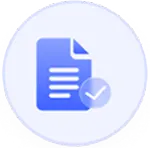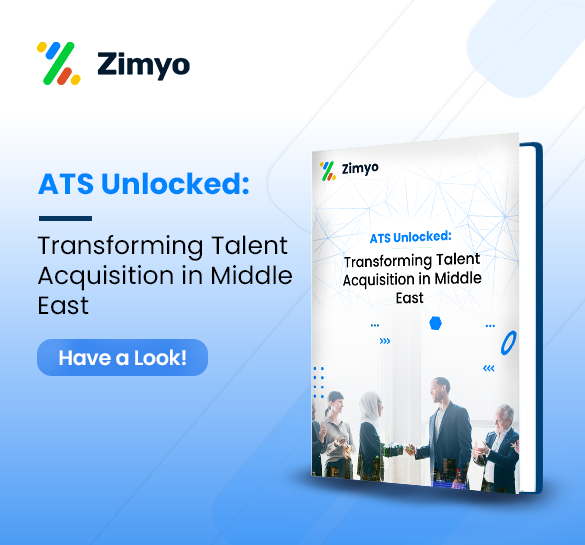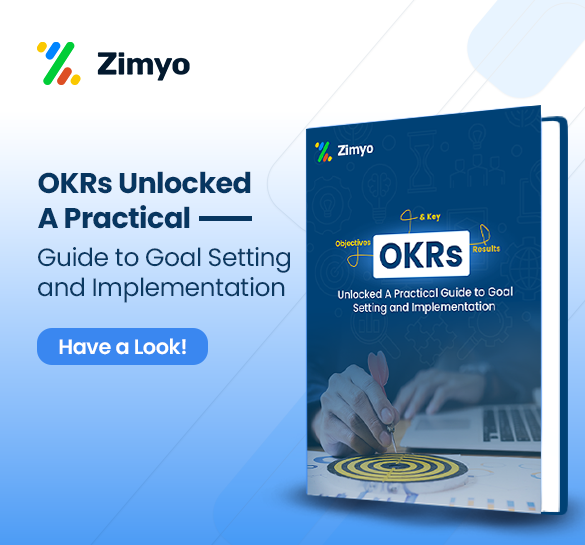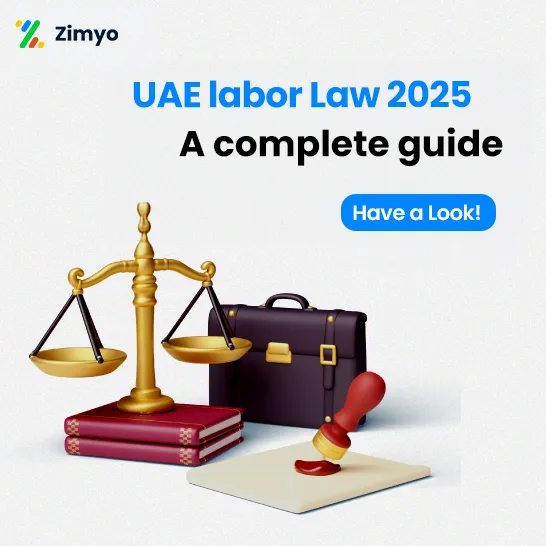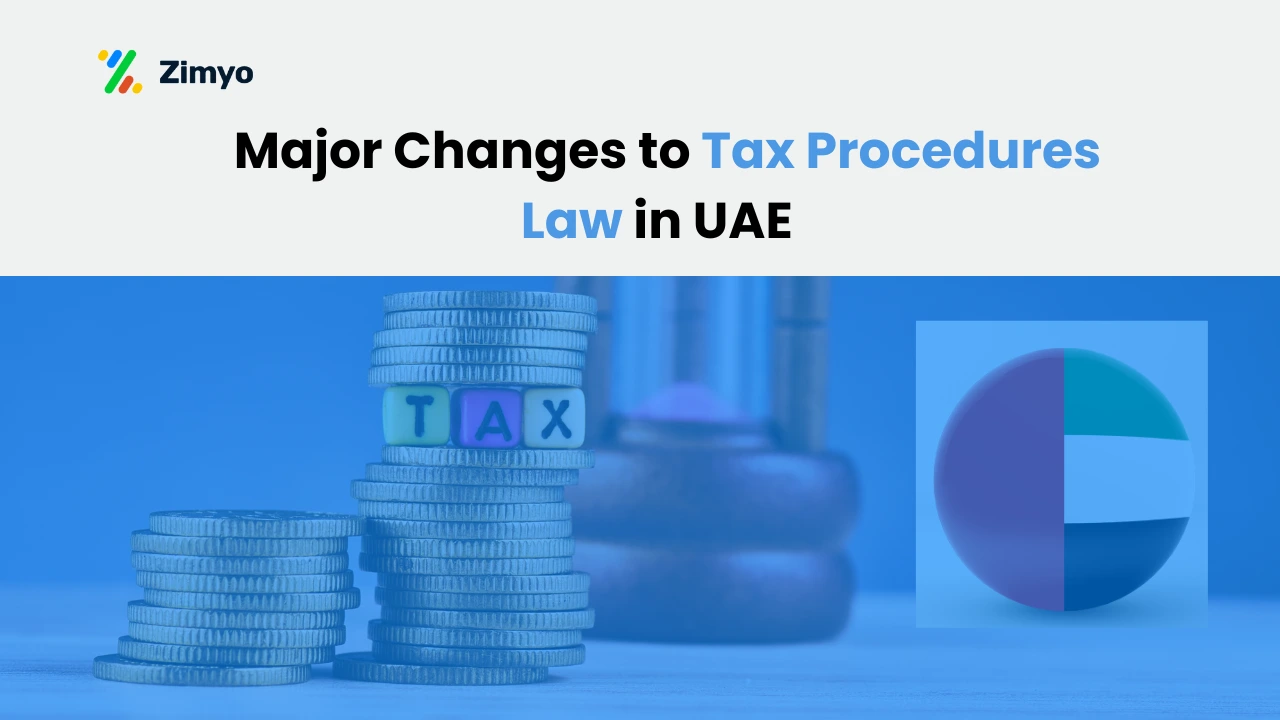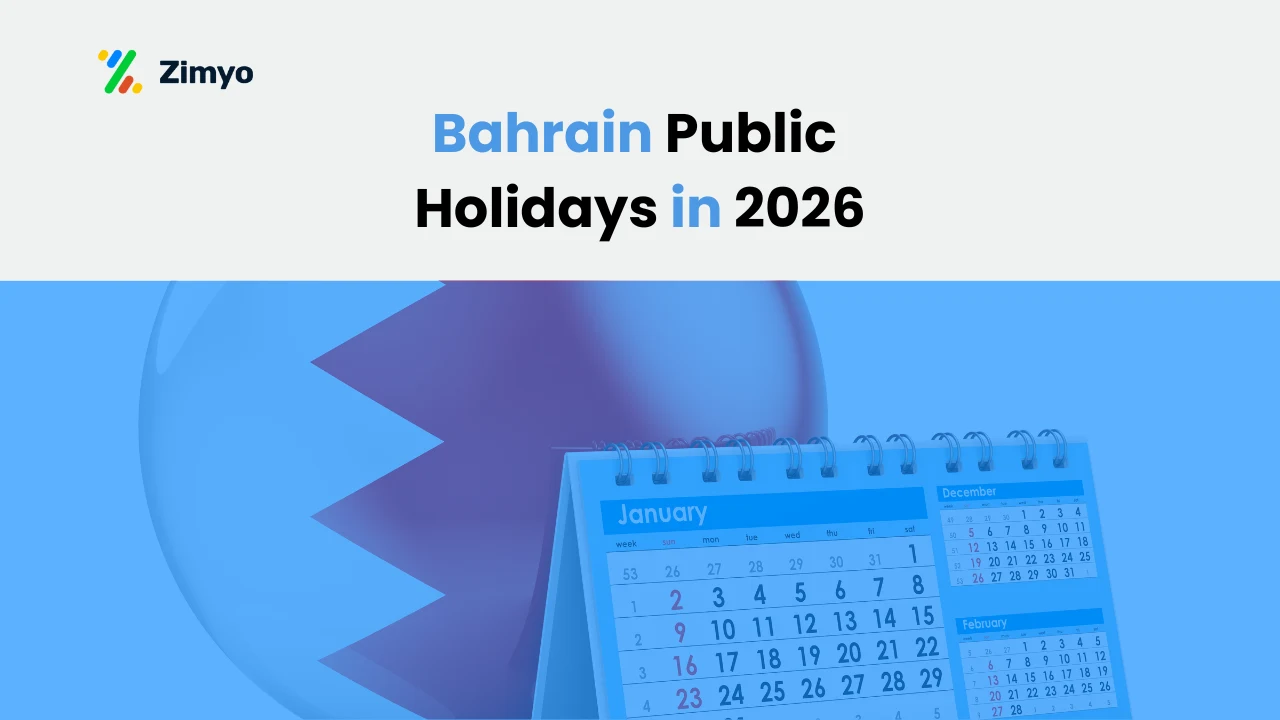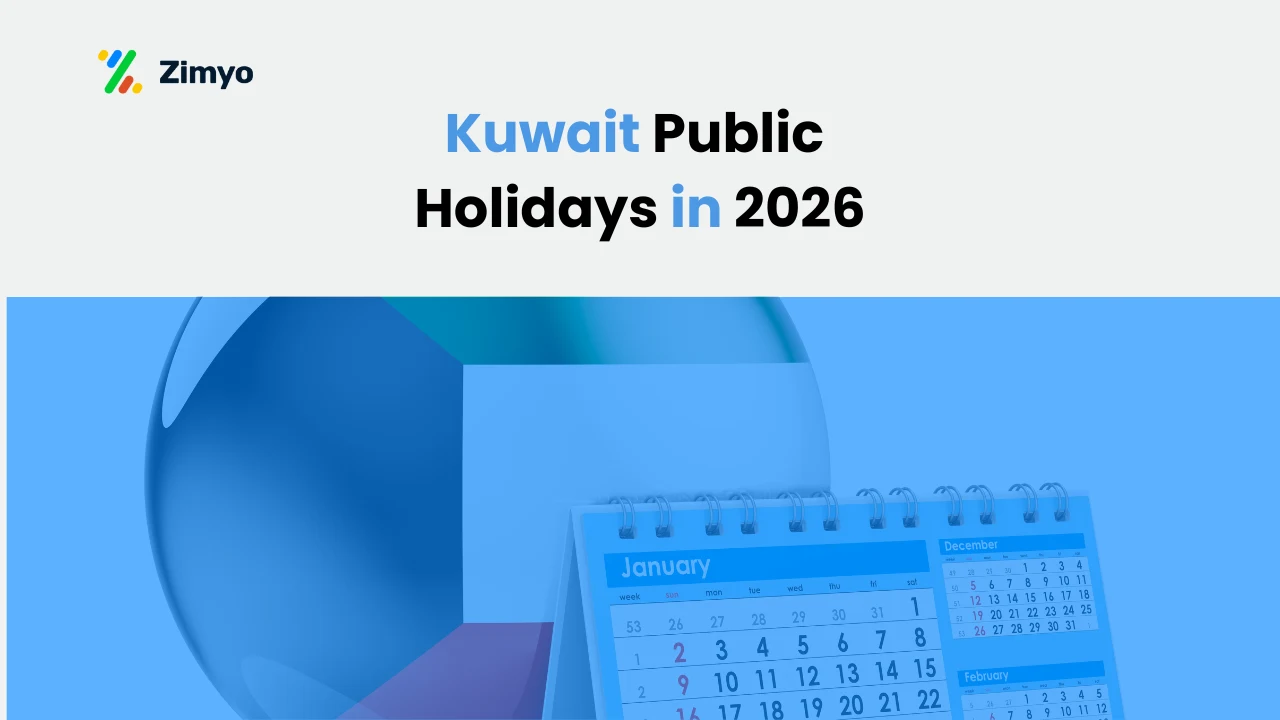Right now, in today’s competitive UAE employment market, workers are seeking more than just compensation. Employee benefits are one of the most important things that can bring employees in and keep them. From medical insurance to remote work options, firms that make a strong investment in complete employee benefits packages enjoy increased engagement, improved staff retention, and a better employer reputation.
This report addresses mandatory and voluntary employee benefits in the UAE, trends that are on the rise, HR technology solutions, effective strategies HR leaders can use, and how platforms such as Zimyo make benefits administration easier.
Why Employee Benefits in UAE are More Important Than Ever
Employee now value work-life balance, financial security, and well-being alongside salaries. Indeed, research indicates that 89% of UAE staff would jump ship for the same salary if an organisation provided more attractive employee benefits.
A solid benefits program:
- Deters employee turnover
- Boosts employer reputation
- Complies with UAE labor law
- Maintains employee productivity and engagement
Multinationals in the UAE more and more localize benefits programs to correlate with local costs and culture. Housing allowances, relocation assistance, and wellness benefits are typical additions that benefit employers in attracting and keeping top performers.
Employee Benefits and Workforce Retention
An effective employee retention strategy involves more than competitive pay. High-performing programs integrate employee rewards programs, benefits, and incentives to minimize turnover and build loyalty. Direct benefits impacting retention are:
- Earned wage access
- Employee incentive programs
- Corporate wellness programs
- ESOPs (Employee Stock Ownership Plans)
- Employee recognition programs
Strong retention programs in companies have lesser attrition, higher engagement, and a better reputation as an employer of choice.
Mandatory Employee Benefits in UAE
The UAE has enacted labor legislation to safeguard workers and maintain fairness in treatment across the board. Employers have to abide by the laws, not just to stay clear of legal actions but also to promote a productive work environment and hold on to talent. This is an elaborate explanation of the benefits that are compulsory:
1. Annual Leave and Public Holidays
Workers in the UAE are accorded paid leave to balance work and life and to avoid burnout. Major points of Annual leave in UAE are:
Annual Leave
- 30 calendar days of paid leave for workers with more than one year of service.
- Workers with less than a year of service get pro-rated leave depending on the number of months worked.
Public Holidays
- Staff are entitled to remunerated public holidays, which could differ marginally every year based on the Islamic (Hijri) calendar.
- Typical holidays include Eid Al Fitr, Eid Al Adha, National Day, and New Year’s Day.
Significance
Accurate leave tracking ensures compliance with labor laws and aids employees’ physical and mental health, leading to increased productivity and retention.
2. Gratuity / End-of-Service Benefits
The UAE labor law requires end-of-service gratuity, a monetary benefit for long service. The major points are:
Calculation
- 1–5 years of service: 21 days of basic salary for each year of service.
- Over 5 years: 30 days of basic salary per year of service for the extra years.
- Maximum gratuity: Two years’ total pay.
Purpose
This advantage serves as a financial safety net for workers exiting the organization and encourages long-term tenure.
Illustration
A worker who has worked for 6 years at a monthly rate of AED 10,000 would receive 21 days yearly for the initial 5 years and 30 days during the 6th year.
Retirement Impact on Retention
An open gratuity policy improves employee loyalty and assists in retention measures.
Over 70% of GCC companies are automating end-of-service gratuity calculations to enhance efficiency and ensure compliance with evolving labor laws
3. Health Insurance of Employees
Health insurance is compulsory under UAE law, and employers are required to insure their entire workforce. The variations occur differently between emirates:
Coverage Requirements
- Full medical coverage, including physician visits, medication, and hospital stays.
- Maternity services for qualified female employees.
- Emergency and special treatments, varying with the policy.
Compliance
- Dubai and Abu Dhabi have government-approved plans, and policies must comply with emirate-specific requirements.
- Employers are required to update policies on a yearly basis and ensure active coverage for all employees.
Strategic Benefits
Employee insurance is one of the most important components of wellness programs and directly affects employee satisfaction and retention.
4. FMLA and Family Leave
Family and medical leave benefits are increasingly emphasized to address employees’ personal and family requirements. UAE employees are qualified to:
Maternity Leave
- 45 days paid maternity leave for employees who have served for one year and above.
- Half pay for employees serving less than one year.
Paternity Leave
5 days of paid paternity leave during the first six months of childbirth.
Parental Leave / FMLA
Employees can have access to further unpaid or partially paid leave to care for family members, based on company policy.
Impact on Employee Wellness
Offering these advantages builds employee-employer trust, facilitates work-life balance, and aligns perfectly with corporate wellness programs.
Simplify Benefits, Amplify Engagement
Extra Points
Certain extra points are
Documentation
Employers are required to have proper records of leave, health insurance, and gratuity payments with Document Management to ensure compliance with labor audits.
Integration with Corporate Policies
Although minimum requirements are established by law, businesses often provide supplemental benefits such as wellness programs, flexible working hours, or education allowances to enhance employee contentment.
Optional Employee Benefits in UAE
Optional benefits have tremendous potential to enhance employee satisfaction and engagement.
1. Housing Allowances
With high living expenses, many firms offer monthly housing allowances or accommodation support, especially for expatriates.
Relocation Assistance
International hires may receive support with:
- Visa sponsorship
- Flight reimbursements
- Temporary housing
- Moving expenses
Impact: Efficient relocation improves employee happiness and reduces early turnover.
3. Educational Assistance
Tuition reimbursement for employees’ children is a valuable benefit that enhances retention strategies and promotes loyalty.
4. Flexible Work Arrangements
Flexible policies reduce burnout and improve productivity. Common alternatives include:
- Remote work
- Compressed workweeks
- Personalized schedules
Additional Benefit: Flexible work arrangements complement corporate wellness and employee well-being initiatives.
Over 60% of the UAE workforce desires the option to work remotely full-time, reflecting a significant shift towards flexible work arrangements in the region.
5. Employee Reward and Incentive Programs
Recognition programs boost motivation and engagement. Examples include:
- Spot awards
- Bonus programs
- ESOPs (Employee Stock Ownership Plans)
- Employee rewards programs
Note: Recognition programs are often bundled with Employee Assistance Programs (EAPs) to enhance overall well-being.
6. Perks at Work
Other workplace benefits that increase morale and job satisfaction include:
- Free food or snacks
- On-site fitness center memberships
- Transportation stipends
Manage, Monitor, and Maximize Employee Benefits
Emerging Trends in Employee Benefits in UAE
The UAE employee benefits landscape is evolving rapidly as organizations adapt to changing workforce expectations. Today’s employees prioritize integrated well-being, tailored perks, and green initiatives over conventional compensation plans. Forward-thinking companies are embracing wellness programs, advanced HR technology, and environmental benefits to boost employee satisfaction, engagement, and productivity.
1. Wellness Programs and Mental Health Support
UAE firms are increasingly focusing on programs that support physical and psychological health. Typical provisions include:
- Gym memberships and exercise classes
- Mindfulness and meditation sessions
- Stress management workshops
- Employee Assistance Programs (EAPs)
Impact: With workplace burnout on the rise, investing in mental health coaching, resilience programs, and wellness allowances improves engagement. Customized wellness options allow employees to select services that best fit their needs, enhancing overall satisfaction and productivity.
2. Personalized Benefits Through HR Tech 4.0
Employees now expect tailored benefits, with over 60% considering them essential and 95% rejecting a one-size-fits-all approach. Companies are responding by implementing HR Tech 4.0 solutions powered by AI and analytics.
AI-driven platforms allow employees to choose perks such as:
- Extra days off
- Childcare assistance
- Learning and development allowances
Employer Advantage: Real-time analytics help companies optimize benefit spending, enhance engagement, and reduce turnover, transitioning from generic to data-driven, personalized benefits.
3. Sustainable and Eco-Friendly Employee Perks
Sustainability is increasingly shaping employee expectations. Companies are adding eco-friendly initiatives to their benefits strategies, such as:
- Public transport allowances and green commuting incentives
- Carbon offset programs
- Green office spaces and sustainable workstations
- Healthy meal options and awareness campaigns
Impact: Environmentally conscious benefits not only support UAE sustainability goals but also attract and retain employees who value corporate social responsibility and environmental stewardship.
Your Complete Solution for Employee Benefits
The Role of HR Technology in Employee Benefits
HR Tech has transformed how companies manage and deliver employee benefits in the UAE. The integration of advanced technology has made benefits administration more personalized, data-driven, and efficient.
1. AI-Driven Personalization
Personalized employee perks are now tailored based on:
- Employee preferences
- Family status
- Job role
Impact: This customization enhances benefits utilization, employee satisfaction, and overall engagement by offering perks that truly match individual needs.
2. Real-Time Analytics
HR Tech enables organizations to track:
- Benefits usage
- Employee satisfaction
- ROI of employee wellness programs and Employee Assistance Programs (EAPs)
Benefit: Data-driven insights help HR teams optimize incentive programs, wellness initiatives, and retention strategies, ensuring better value for both employees and employers.
3. Seamless Integration of Wellness Platforms
The integration of multiple HR and wellness systems allows employees easy access to essential well-being resources, including:
- Insurance platforms
- EAP services
- Corporate wellness programs
Result: This seamless experience promotes financial, physical, and mental well-being, leading to a healthier, more motivated workforce.
Shaping the Future of Employee Benefits
The UAE is witnessing a shift in employee benefits as organizations focus on well-being, personalization, and sustainability.
Wellness Programs and Mental Health Assistance: Gym memberships, mindfulness sessions, stress management workshops — boost engagement and reduce burnout.
Tailored Benefits Through HR Technology: Additional leave, childcare assistance, education allowances — improve satisfaction, productivity, and retention.
Environment-Friendly and Sustainable Perks: Public transport allowances, green office programs, carbon offset initiatives — support UAE sustainability and engage employees.
Over 70% of GCC organizations have adopted AI in at least one business function, with 57% allocating over 5% of their digital budgets to generative AI.
Creating a Competitive Employee Benefits Strategy
To retain best talent:
Evaluate Employee Preferences – Use surveys and feedback tools to understand employee needs.
Align Benefits with Company Objectives – Offer incentives and career progression tied to performance.
Ensure Adherence – Comply with UAE labor laws and Emiratisation regulations.
Harness Technology – Use HR Tech 4.0 for efficient benefits administration and monitoring.
Measuring ROI on Employee Benefits
Measuring ROI on Employee Benefits
- Monitor important metrics:
- Employee satisfaction ratings
- Retention percentages
- Improvement in productivity
- Benefits usage rates
Tools such as AI-based HR systems offer dashboards to track employee benefits packages, employee insurance, and EAP services.
Practical Tips for Businesses: Providing Employee Benefits Within a Limited Budget
Small businesses tend to have narrower budgets, yet providing effective employee benefits need not be costly. Even small frills can go a long way in boosting employee morale, retention, and overall job satisfaction. Here are practical tips:
1. Small Team Health Insurance Plans
- Personalized Coverage: Small companies can opt for straightforward, wide-ranging health insurance policies covering core medical needs at lower costs than corporate-level plans.
- Emirate-Specific Compliance: Ensure health insurance complies with local legislation, particularly in Dubai and Abu Dhabi, where coverage is mandatory.
- Optional Add-Ons: Consider adding maternity coverage, dental, or wellness benefits as optional add-ons employees can choose.
- Example: A 10-person startup could select a simple group insurance plan for hospitalization and outpatient services at a much lower cost per employee than high-end corporate plans.
2. Flexible Schedules and Remote Work
- Flexible Hours: Allow employees to choose start and end times to enhance work-life balance.
- Remote Work Options: Even a half-and-half work-from-home schedule can boost productivity, reduce commute stress, and make small businesses more attractive.
- Low Cost: Flexible arrangements are inexpensive yet improve employee satisfaction and retention.
- Tip: Use project management tools to maintain accountability and workflow while offering flexibility.
3. Performance-Based Employee Incentive Programs
- Incentives Without Large Budgets: Use performance bonuses, ad hoc rewards, or commission-based incentives based on measurable results.
- Non-Monetary Rewards: Reward achievements with certificates, awards, or tokens of appreciation to reinforce positive behavior and boost morale.
- Example: Quarterly bonuses for sales or project milestones, or an “Employee of the Month” recognition program.
4. Recognition Programs and Simple Perks at Work
- Low-Cost Recognition: Recognize employee efforts through shout-outs, emails, or team meetings to build loyalty and engagement.
- Perks at Work: Flexible lunch hours, dress-down days, team-building events, free coffee or snacks, and occasional team lunches improve morale at minimal cost.
- Tip: Celebrate birthdays and work anniversaries to make employees feel valued.
5. Use Technology to Save Costs
- Implement cost-effective HR and payroll software to track leave, benefits, and incentives while ensuring compliance with UAE labor laws.
- Employee wellness apps and web-based recognition software can drive engagement without significant investment.
6. Communicate and Customize Benefits
- Clear Communication: Employees should know exactly what benefits they have and how to use them.
- Tailor Benefits: Conduct surveys to identify which benefits employees value most; sometimes flexible schedules or recognition programs are more appreciated than high-cost perks.
- Impact: Even a lean, well-communicated benefits package can significantly improve retention, engagement, and satisfaction.
Conclusion
Strategic employee benefits in the UAE go beyond merely meeting compliance requirements; they serve as essential tools for attracting and retaining top talent, enhancing employee engagement and productivity, and strengthening employer branding. While voluntary benefits such as health insurance and gratuity provide a solid foundation, additional offerings like flexible work arrangements, ESOPs, wellness programs, and employee recognition initiatives further boost employee satisfaction.
Investing in comprehensive benefits packages and leveraging platforms like Zimyo is crucial for companies aiming to thrive in the competitive UAE labor market.
Simplify Employee Benefits from Day One to Retirement
Frequently Asked Questions (FAQs)
Employees are entitled to annual leave, health insurance (in certain sectors), and end-of-service gratuity.
Common allowances include housing, transport, and utility allowances, depending on the employer.
Upon the completion of one year, the employee is given 21 days‘ basic salary as gratuity.
Yes, the benefits include end-of-service gratuity, paid leave, and health insurance.
An employee benefit is a perk or compensation offered in addition to salary in order to enhance well-being and satisfaction.
Housing stipends, relocation benefits, wellness initiatives, flexible work arrangements, ESOPs, and employee recognition schemes.
HR automates administration, personalizes benefits, monitors usage, and calculates ROI on employee wellness initiatives and EAP services.


















